10/09/19
K-State Current - October 9, 2019
K-State Current is a weekly news update for the Kansas Board of Regents to apprise the Regents on a few of the many successes and achievements made by K-State faculty, staff and students.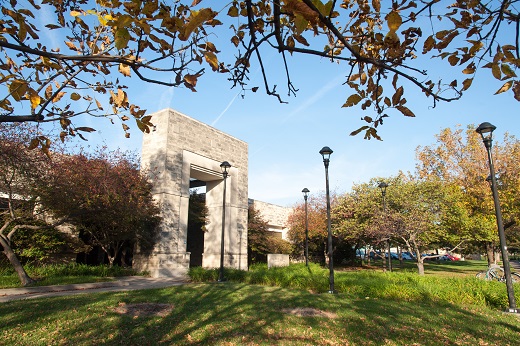
K-State News
K-State hires Karen Goos as inaugural vice provost for enrollment management
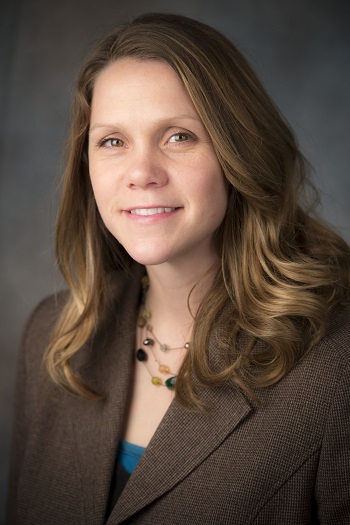 Karen Goos is joining Kansas State University as its first chief enrollment officer and will lead implementation of the university's comprehensive, multiyear strategic enrollment plan.
Karen Goos is joining Kansas State University as its first chief enrollment officer and will lead implementation of the university's comprehensive, multiyear strategic enrollment plan.
Charles Taber, K-State provost and executive vice president, has announced the appointment of Goos as vice provost for enrollment management following a national search. Goos, who currently serves as interim vice provost for enrollment management at the University of Central Missouri, will begin her new job on Nov. 18.
"With her strong background in enrollment management, Dr. Goos will be tasked with providing strategic leadership and vision to all aspects of enrollment management at K-State, including domestic and international student recruitment, financial aid, registration and transfer enrollment," Taber said.
Goos' key responsibilities will be implementing the university's strategic enrollment plan; refining the university's marketing position; managing, developing and leading K-State's enrollment management organization; and ensuring the enrollment of a talented, diverse student body.
"I am excited to be joining the K-State," Goos said. "The university has had a long history of valuing students and their success. I have always been impressed with K-State, and look forward to working with the talented campus community to help tell their story and commitment to academic excellence. This is an exciting time at K-State and I am thrilled to be a Wildcat."
As UCM's interim vice provost for enrollment management since January 2018, Goos has served as the school's chief enrollment management and student success officer. She oversees undergraduate and graduate admissions, international student services, the registrar's office and student financial aid, as well as the university's advising center, academic support services, first-year experience program and other key student success programs. She also developed and managed the nearly $17 million budget for the enrollment management units and chaired the strategic enrollment management planning and implementation teams. Under her leadership, UCM has achieved an increase of 6% in graduate enrollment and 16% in international enrollment.
Goos served as associate vice provost for enrollment management at UCM from April 2016 to December 2018. In this role, she was the chief student success officer and was responsible for the design and implementation of a comprehensive retention and student success plan. Her work resulted in a 4% increase in freshman student retention, a 2% increase in transfer student retention and a 6% increase in graduation rates. She also developed and initiated a summer bridge program for low-income, first-generation and historically underserved students.
Before joining UCM, Goos worked at several campuses of Metropolitan Community College in Missouri. She was dean of student development and enrollment management from October 2012-March 2016 at Metropolitan Community College-Longview in Lee's Summit; associate vice chancellor of student development and enrollment management at Metropolitan Community College-Kansas City from July 2014-August 2015; associate dean of student development and enrollment management from August 2010-October 2012 and registrar from May 2009-August 2010 at Metropolitan Community College-Blue River in Independence; enrollment services manager at Metropolitan Community College-Kansas City from April 2008-May 2009; and college relations coordinator from February 2005-April 2008 at Metropolitan Community College-Maple Woods, also in Kansas City.
Goos earned a bachelor's degree in elementary and middle school education from Doane College; a master's in exercise science-athletic administration from UCM; and a doctorate in educational leadership and policy analysis from the University of Missouri.
Jeannie Brown Leonard to guide student success at Kansas State University
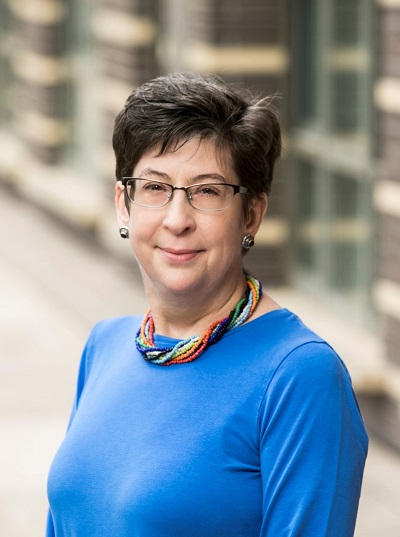 An experienced student academic affairs leader will be Kansas State University's first vice provost for student success.
An experienced student academic affairs leader will be Kansas State University's first vice provost for student success.
Jeannie Brown Leonard has been appointed to the new position by Charles Taber, K-State provost and executive vice president, following a national search. Currently the dean of student academic affairs, advising, retention and transitions at George Mason University, Brown Leonard will start her new job at K-State on Jan. 6, 2020.
"As vice provost for student success, Dr. Brown Leonard will identify, develop and guide innovative initiatives to improve the retention, persistence, progression and graduation of students," Taber said. "Her leadership will be vital in coordinating the work of university units and programs that focus on retention and student success."
Brown Leonard's core duties and responsibilities include organizing, uniting and overseeing the various programs and services under the purview of the vice provost for student success to ensure they are meeting student needs and are effective. She also will oversee universitywide retention and student success programs to ensure a strong academic foundation for both incoming first-year and continuing students.
Among the student success units, programs and services that will report to Brown Leonard include K-State First, the university's first-year experience program; the Academic Achievement Center; Office of First-Generation Students; Office of Undergraduate Research & Creative Inquiry, which includes the Developing Scholars Program and the Kansas Louis Stokes Alliance for Minority Participation; University Honors Program; Student Success Collaborative; Educational Supportive Services; McNairs Scholars Program; and Office of Nationally Competitive Scholarships.
"I am looking forward to collaborating with senior leaders, students, faculty and staff to support K-State's deep commitment to diversity, inclusion and student success," Brown Leonard said. "By building on existing strengths in academic affairs and student affairs and leveraging insights from data, I am confident we can improve the student experience and help the K-State achieve its strategic goals. I am excited to join the vibrant K-State community."
Brown Leonard has served in her current position at George Mason since May 2008, leading the university's academic affairs student success strategy and providing leadership and vision for the faculty, staff and graduate assistants in the Center for Academic Advising, Retention and Transitions. Her work includes setting strategic direction and campus priorities shaped by the university's Student Success and Retention Action Council. She was principal investigator for the iPASS — Integrated Planning & Advising for Student Success — grant from the Bill and Melinda Gates Foundation. Using focus group data, Brown Leonard has worked to improve George Mason's transfer student experience, which has included providing resources for community college counselors and transfer students via a website that gets more than 45,000 views annually.
Other responsibilities are providing academic advising leadership. Along with collaborating with the university's 10 school and college student academic affairs units to improve advising practice, Brown Leonard led the adoption and integration of the Navigate Mason technology platform to include all academic units, athletics and five student service offices.
Before joining George Mason, Brown Leonard's experience includes serving at Miami University in Oxford, Ohio, as assistant dean of the School of Interdisciplinary Studies and as assistant to the dean for special student recognition and an academic advisor in the College of Arts and Sciences.
She has taught courses at George Mason University and the University of Maryland, Baltimore County. She also has been an invited speaker and presenter on student success, learning, engagement and assessment at conferences and professional meetings across the country, and has published her work in Research in Higher Education, Journal of College Student Development, NASPA Journal and more.
Brown Leonard earned a bachelor's degree in psychology from Mount Holyoke College, a master's degree in higher education and student affairs administration from the University of Vermont, and a doctorate in college student personnel from the University of Maryland.
NSF awards team $1.4M to improve research computing in Midwest
 Many colleges and universities across the Midwest need comprehensive assistance with building or improving their cyberinfrastructure, but may not know exactly what they need or where to start.
Many colleges and universities across the Midwest need comprehensive assistance with building or improving their cyberinfrastructure, but may not know exactly what they need or where to start.
A team of seven experts from universities across the region — including K-State — recently received $1.4 million from the National Science Foundation to both meet this need and provide workforce development to fill an emerging need in high-performance research computing.
Called the CyberTeam, it is made up of experts from several states who have a wealth of knowledge in the aspects that go into research computing, including hardware, software, computing architecture, cybersecurity and more.
Daniel Andresen, professor of computer science and director of K-State's high performance computing effort Beocat, is co-PI on the team. He's joined on the CyberTeam by Tim Middelkoop, principal investigator, University of Missouri; James Deaton, Great Plains Network; Douglas M. Jennewein, University of South Dakota; David Swanson, University of Nebraska-Lincoln; Kevin Brandt, South Dakota State University; and George R. Louthan IV, University of Oklahoma.
"The drive behind it is there's a critical need for building cyberinfrastructure across the nation and the region, as well," Middelkoop said. "There are a lot of small colleges that are underresourced and have a lot of personnel turnover."
Many of these universities would benefit from greater high-performance computing power to aid research across campus and to serve any additional high-performance computing power needs they may have. This program would pair a mentor from the CyberTeam with a mentee at a college or university partner. They would work together to determine the institution's needs and walk through the process together from conception to implementation.
"Say they need storage, we will go in and work with the researcher to figure out the types of storage, their needs, how they'll interact with it, their budget, security and design parameters, as well as the hardware itself," Middelkoop said. "We'll work with the vendors to come up with a technical solution, physically install it, go through the installation and build process with them together and provide ongoing support."
While helping institutions meet their computing needs, the CyberTeam will also work with students to help train them on how to meet the needs of the nascent field of research computing. With so much scientific discovery requiring high-performance computing resources to do modeling, crunch data, store results and more, the field needs well-trained personnel who can help bridge the gap between researchers and their computing needs. It requires someone who can combine research skills and IT support, among other attributes.
"Research computing is not entirely on the faculty or staff side," Middelkoop said. "Research computing is the middle where you're helping facilitate research, co-discovering, working with researchers and learning with them what are the best practice approaches.
"This entirely new career path is partly research, partly academic, partly support. It's our job as cyberinfrastructure professionals to facilitate research, to serve the researchers, but we also work with them in a team manner."
Beocat is the central computing resource for multiple departments across campus, and is available to any academic researcher in Kansas and their partners under the statewide KanShare memorandum of understanding. Use of Beocat is free for professors and students in the state of Kansas. In addition to many users across the K-State campus, Beocat also is a resource for users from Wichita State University, Washburn University, Bethany College, Pittsburg State University, the University of Kansas and other institutions.
Beocat is supported by the National Science Foundation, National Institutes of Health, Department of Energy, Office of Research and Sponsored Programs and Information Technology Services. For more information on its use or a tour, contact Andresen at dan@k-state.edu or 785-532-7914.
Read more information about the grant. Content used with permission.
K-State Faculty Highlights
Debra J. Bolton selected as 2019 Kansas Geography Teacher of the Year
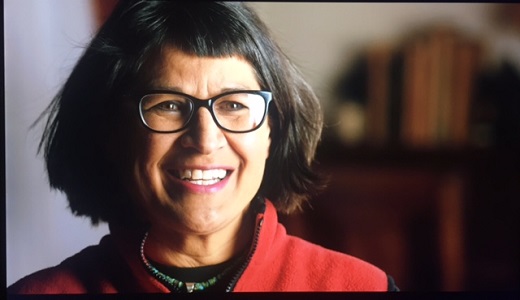 The Kansas Geographic Alliance announces Debra J. Bolton, director of intercultural learning and academic success in the Department of Diversity and Multicultural Student Affairs, has been chosen as the 2019 Kansas Geography Teacher of the Year.
The Kansas Geographic Alliance announces Debra J. Bolton, director of intercultural learning and academic success in the Department of Diversity and Multicultural Student Affairs, has been chosen as the 2019 Kansas Geography Teacher of the Year.
According to the alliance, Bolton has done an outstanding job forwarding the cause of geographic literacy and cultural diversity awareness in Kansas classrooms and the community. Through her research and advocacy efforts, she continues to provide awareness regarding the cultural fabric of Kansas and the underserved.
As a member of the Kansas Geographic Alliance Executive Committee, Bolton has shared a considerable amount of her time and energy in support of Kansas teachers and students. In partnership with the National Geographic Society, she successfully initiated the "Girl Power GIS" program, providing female students of color with exposure to Geographic Information Systems in support of STEM related career paths. Co-hosting the HPPR radio show, "Silver Rails," Bolton has reached out to the community, sharing stories and facts that have increased geography interest throughout Kansas.
Computer science professors received multiple awards
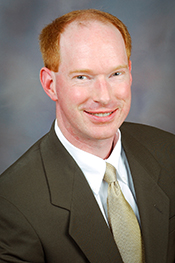 Professors John Hatcliff and Robby in the Department of Computer Science are currently on sabbatical leave hosted by United Technologies’ Collins Aerospace, formerly Rockwell Collins. To support their research work during the leave, Collins granted a project award titled "High-Assurance Model-Based System Engineering for Safety and Security" totaling $589,909 for the period of May 2019 to August 2020.
Professors John Hatcliff and Robby in the Department of Computer Science are currently on sabbatical leave hosted by United Technologies’ Collins Aerospace, formerly Rockwell Collins. To support their research work during the leave, Collins granted a project award titled "High-Assurance Model-Based System Engineering for Safety and Security" totaling $589,909 for the period of May 2019 to August 2020.
Collins also expanded the roles of Robby and Hatcliff in the existing $800,000 Defense Advanced Research Projects Agency Cyber Assured Systems Engineering or DARPA CASE, subcontract with Adventium Labs, which includes K-State's portion of $300,000. An additional $150,000, of which $75,000 is awarded to K-State, has also been given for the remaining CASE Phase 2 through July 2020. This portion of the funding centers around system architecture information flow analysis for cyber-resiliency. The funding will be used to supplement existing support for research assistants and associates working on the DARPA CASE project.
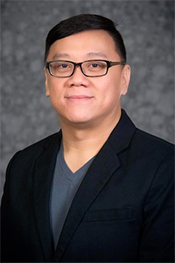 In addition, Hatcliff and Robby, along with Adventium Labs, received Department of Defense Small Business Innovation Research, or SBIR, Phase 1 awards.
In addition, Hatcliff and Robby, along with Adventium Labs, received Department of Defense Small Business Innovation Research, or SBIR, Phase 1 awards.
The first of these is the Grand Unified Modeling of Behavior Operators, or GUMBO, for the period of April to August 2019 with a total project budget of $100,000 from the U.S. Army Combat Capabilities Development Command, Aviation and Missile Center, formerly the Aviation and Missile Research, Development, and Engineering Center.
The second award is Information Flow Control for Microkernels and is for the period of July 2019 to January 2020 with a total project budget of $150,000 from the U.S. Air Force Research Laboratory.
Additionally, the Software Engineering Institute at Carnegie Mellon University granted Hatcliff, Robby and Eugene Vasserman, computer science associate professor, an award titled "AADL Analyses and Modeling Strategies for Safety and Security" for the performance period of May 2019 to September 2020 with a project total of $420,000. This award is a continuation of their 2018 $105,000 institute-funded yearlong project "Fault Injection and Analysis for Safety and Security."
K-State Student News
APDesign architecture students win 2019 Studio Prize
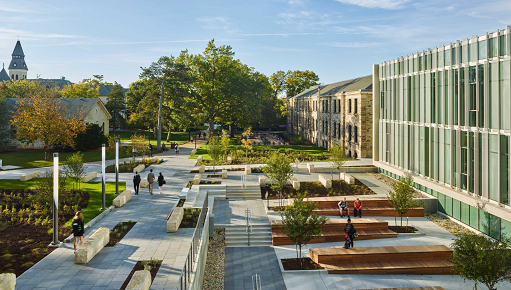
A studio in Kansas State University's College of Architecture, Planning & Design, known as APDesign, was one of five selected nationally as winners of the Journal of the American Institute of Architects' Studio Prize.
Now in its fourth year, the prize celebrates excellence in design education by recognizing thoughtful, ethical studio courses from accredited architecture schools. The students enrolled in the winning courses receive a cash prize from a $25,000 purse furnished by the program’s exclusive sponsor, Sloan.
The winning APDesign studio included 14 fifth-year Master of Architecture students. As part of their yearlong architecture design thesis studio, led by Wendy Ornelas, professor of architecture, and Fuensanta Nieto, Regnier Distinguished Chair, the students were asked to explore how to introduce migrants in Granada, Spain, to a new country and a new way of life.
The students performed an intensive research program on the Albaicín neighborhood in Granada, Spain, which has been a locus for African migrants. In late fall 2018, the students took a two-week trip to Spain, including a week in Granada, to better understand the impact of migrant resettlement, and then developed design solutions to health, education and integration challenges faced by Spain’s migrant community. They were able to compare their research findings with real-world conditions — an experience that challenged their initial assumptions about the site in Granada, and caused many to rethink their original projects. Upon return to K-State, the students spent the spring semester refining and deepening their proposals, so that their final projects included detailed schemes — down to mechanical systems and construction budgets.
The jury felt that this mix of intensive research and design made for a set of projects that were not just attractive, but sensitive to a mounting humanitarian crisis.
“They’re serving those who are disproportionately affected, not as a design solution, but as a form of caring and healing through architecture,” said juror Bryan C. Lee Jr, design director at Colloqate, New Orleans.
Ornelas said the experience showed students the value of deep research and the importance of marrying that information with a coherent and persuasive argument for their proposal.
“They really had to understand the program, which taught them that they need to have a compelling story to tell clients,” she said. “If you don’t understand what you’re doing, you’re never going to sell anything as a professional.”
The APDesign students who participated in the course were Tara Bray, Niklas Carlson, Kasey Holle (student work submitted); Lauren Bailey, Kathleen Eberth, Morgan Gales, Tucker Glasse, Brandon Heide, Regan Kerfeld, Logan Medrano, Andrew Rash, Alexandra Wilson, Chandlor Wilson and Kathryn Zieno.
Additional guidance for the studio was provided by Chris Fein, visiting assistant professor; Elizabeth Amirahmadi, founding partner of International Architects Atelier; John Shreve and Alfredo Baladrón.
In addition to Lee, the jury included Thomas Fisher, Dayton Hudson Chair in Urban Design, University of Minnesota School of Architecture, College of Design and director, Minnesota Design Center, Minneapolis; and Carol Ross Barney, design principal at Ross Barney Architects, Chicago.